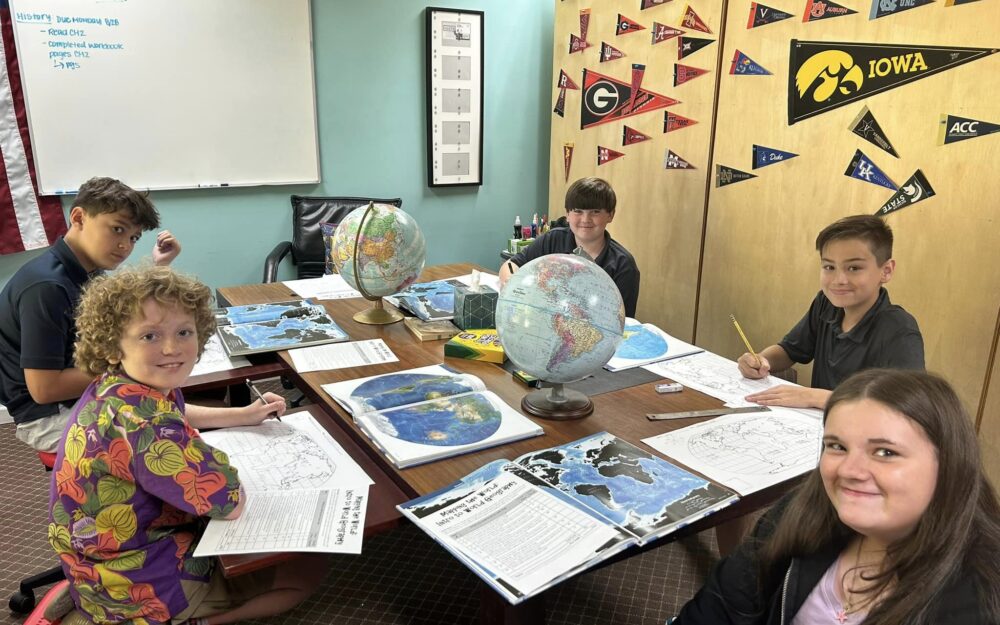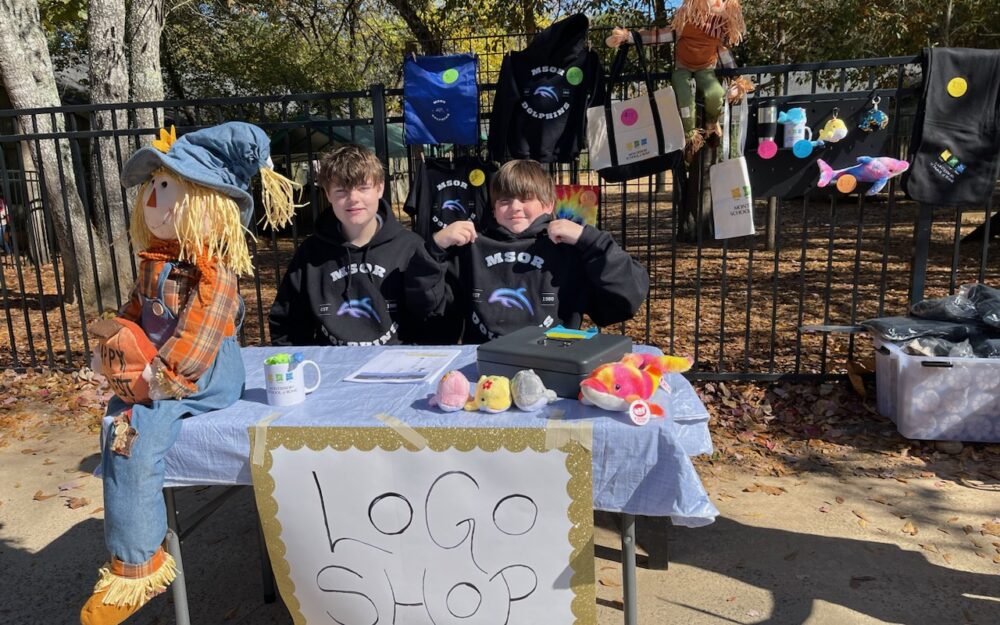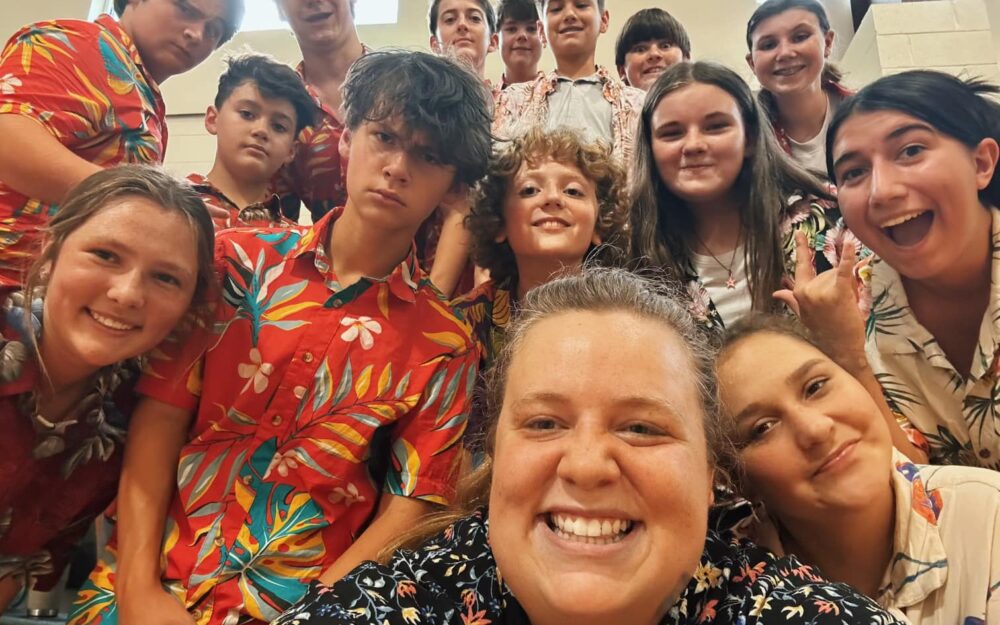Adolescent
“My vision of the future is no longer of people taking exams and proceeding on that verification from that secondary school to the university, but of individuals passing from one stage of independence to a higher [one], by means of their own activity, through their own effort or will, which constitutes the inner evolution of the individual.”
Dr. Maria Montessori
The Montessori School of Rome provides an Adolescent program carefully aligned with the vision of Dr. Maria Montessori. As Voltaire wrote, “with great power comes great responsibility,” and we want our students to carefully consider the duties of an Adolescent student before committing to this program. We promise to provide our students with a meaningful Adolescent curriculum.
What makes a great MSR Adolescent student?
Someone who is a self-directed, active learner, and curious about our world. We want students who do not listen to lectures and repeat the information. Students should be engaged in creative thinking and problem solving. We see ourselves as engaged facilitators in their learning process. In exchange for the promises we make to them, we invite a reciprocal agreement from the students. They are given responsibility and respect.
What subjects are included in the curriculum?
Our academic program focuses on the humanities (literature, language, critical thinking, creative writing, American and world history, cultural studies, geography, and current events. We offer a complete math curriculum of Pre-Algebra, Geometry, and Algebra. Science studies cover Life Sciences, Earth Sciences and Physical Sciences, covering Biology, Chemistry, and Astronomy. We also incorporate Spanish, physical fitness, music, art, and research skills. High school credit may be given for some of our advanced subjects.
What makes us different from a traditional middle school?
An important focus of the program is finance and entrepreneurship. Students are responsible for developing a business to raise funds for a major trip each year, and to give back to the school community. This year, the students run “The Lunch Box” business and “The Back Door Scoop”. They are in charge of marketing, implementation, delivery, and financial statements.
Each student is writing and illustrating a book this year. All will be published authors in the Library of Congress by the end of the year.
What about travel?
This year, the students went to Williamsburg, Virginia to have experiential learning after studying our country’s founding fathers. They traveled to Cherokee, North Carolina and took classes at the Museum of the Cherokee Indian in Native American dance and beadwork. They created Native American jewelry. They presented their studies to the Upper Elementary students, reinforcing what they have learned. Last year, to supplement their Mayan studies, they went to Mexico.
In March 2016, they went to Arizona, Texas, and New Mexico to further our Native American studies. They visited the Painted Desert and the Grand Canyon. In September 2016, they visited Sapelo Island as part of their Georgia studies of the Geechee people. In March 2017, they went to Cuba for a cultural exchange trip and helped with a local school.
All funds for these trips are earned by the students, and they are active participants in the travel itinerary and plans.
Is it difficult to contact your child’s teacher?
We are a small community, and we get to know your children very well. We offer parent/teacher/student conferences three times a year where we all sit down and discuss your child’s progress. These conferences last anywhere from one to two hours depending on your student’s needs. Your child receives an exceptional level of personal attention to ensure your child’s academic success. Our teachers are available daily by email, phone, and personal contact.
Do you offer Physical Education?
Our students take private tennis lessons weekly, and they participate in local soccer, baseball, and dance activities.
What about gardening?
The Adolescent program had a mini-farm/gardening experience in the 2016-2017 school year, growing their own vegetables for a Farmer’s Market business. They have built greenhouses, a chicken coop, and sell organic eggs. The garden will expand in the years to come.
What are the school’s expectations?
We expect our students to:
- Contribute in a meaningful way to experience the responsibilities and leadership possibilities within my class.
- Utilize critical thought and abstract thinking to create interdisciplinary project based approaches to learning.
- Develop a personal connection to the subjects offered.
- Accept the limitations of others and work with classmates to the best of their ability to create a sense of belonging and acceptance.
- Take responsibility for creating a space where people feel welcomed and valued.
- Respect and honor each student’s differences, complexities, and gifts, creating an atmosphere for personal growth without ridicule.
- Participate in seminars, group learning, and hands-on activities.
- Demonstrate mastery of material in the Adolescent curriculum by properly preparing for each class and taking seriously the assessments, whether they be quizzes, tests, book reports, oral presentations, group work, visual projects, demonstrations, and science labs.
- Participate in the performing arts to enhance the community
- Maintain the environment both inside and outside the classroom.



